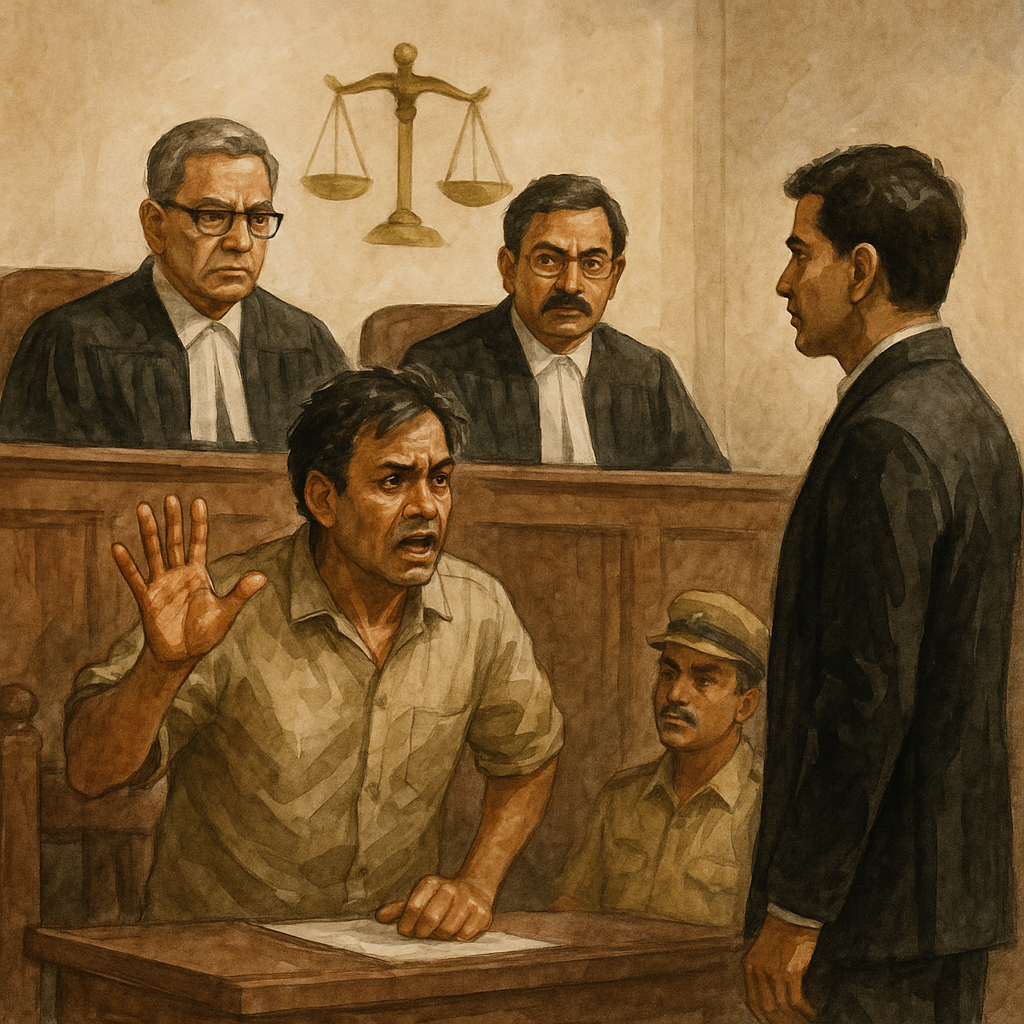Simplified Explanation of the Judgment
In a recent ruling, the Patna High Court addressed the crucial issue of how appeal timelines under the Goods and Services Tax (GST) regime should be interpreted, especially regarding the distinction between calendar months and days.
The case involved a private limited company registered in Patna, Bihar, which challenged an appellate order that had dismissed its GST appeal solely on the ground of delay. The original demand was raised by the Assistant Commissioner of State Tax under Section 73(9) of the CGST/BGST Act, 2017. The demand included ₹81.21 lakh in tax, ₹77.97 lakh in interest, and ₹8.12 lakh as penalty for the period from July 2017 to March 2018.
The company filed an appeal in GST Form APL-01 on 26 April 2024. The appellate authority rejected it on 18 May 2024, stating that the appeal was time-barred as it was not filed within 120 days (90 days for appeal and 30 days of condonable delay) from the date of order, which was 27 December 2023.
The petitioner argued that the CGST/BGST Act provides the appeal timeline in months—not in days—and the filing was within the permissible four calendar months (three months of limitation plus one month of condonable delay). The petitioner cited several Supreme Court judgments to support its claim that a “month” should be understood as a calendar month and not as 30 days.
The High Court accepted the petitioner’s contention and noted that under Section 107 of the CGST/BGST Act, the law clearly states “three months” and “one month” rather than “90 days” or “30 days.” This legislative choice, as the Court emphasized, reflects the intent to consider calendar months, not fixed day counts.
Citing key Supreme Court rulings such as Econ Antri Ltd. v. Rom Industries Ltd. (2014) and State of West Bengal v. Rajpath Contractors and Engineers Ltd. (2024), the Court confirmed that the appeal timeline should be computed in calendar months.
The High Court held that the appellate authority’s interpretation was flawed and contrary to binding judicial precedents. It declared the appeal, filed on 26 April 2024, as well within the permissible timeframe.
Accordingly, the Patna High Court quashed the rejection order and directed the appellate authority to restore the appeal and decide it on merits after giving the petitioner a hearing.
Significance or Implication of the Judgment
This judgment clarifies a recurring confusion faced by taxpayers and tax officers regarding appeal timelines under the GST laws. By distinguishing between calendar months and numerical day counts, the Court has protected taxpayers from arbitrary dismissal of appeals due to technical interpretations. It reinforces the principles of natural justice and strengthens procedural fairness under the CGST/BGST framework.
For government officers, it serves as a clear directive to follow the exact legislative language and binding precedents while adjudicating matters. For the general public and businesses, it ensures that statutory remedies remain accessible and are not blocked by procedural misinterpretations.
Legal Issue(s) Decided and the Court’s Decision
- Issue: Whether “three months” and “one month” mentioned in Section 107 of the CGST/BGST Act should be interpreted as calendar months or as 90 and 30 days, respectively.
- Decision: The Court held that the law provides for calendar months and not fixed day counts. The appeal filed within four calendar months was within the permissible timeframe.
- Issue: Whether rejection of an appeal on the ground of limitation without considering the cause for delay violates principles of natural justice.
- Decision: Yes. The appellate authority should have considered the petitioner’s reasons before dismissal. The rejection was thus invalid.
Judgments Referred by Parties
- State of Himachal Pradesh v. Himachal Techno Engineers, (2010) 12 SCC 210
- Bibi Salma Khatoon v. State of Bihar, (2001) 7 SCC 197
- Econ Antri Ltd. v. Rom Industries Ltd., (2014) 11 SCC 769
- State of Bihar v. Kalika Kuer @ Kalika Singh & Ors., (2003) 5 SCC 448
Judgments Relied Upon or Cited by Court
- Econ Antri Ltd. v. Rom Industries Ltd., (2014) 11 SCC 769
- State of West Bengal v. Rajpath Contractors and Engineers Ltd., 2024 INSC 477
- Saketh India Ltd. v. India Securities Ltd., (1999) 3 SCC 1
- Tarun Prasad Chatterjee v. Dinanath Sharma, (2000) 8 SCC 649
Case Title
M/s Brand Protection Services Pvt. Ltd. v. The State of Bihar & Ors.
Case Number
Civil Writ Jurisdiction Case No. 14957 of 2024
Citation(s)– 2025 (1) PLJR 881
Coram and Names of Judges
Hon’ble Mr. Justice Rajeev Ranjan Prasad
Hon’ble Mr. Justice Ramesh Chand Malviya
Names of Advocates and who they appeared for
Mr. Anubhav Khowala, Advocate — for the petitioner
Mr. Vivek Prasad, GP-7 — for the respondents
Link to Judgment
MTUjMTQ5NTcjMjAyNCMxI04=-SF–am1–FgO1X9iE=
If you found this explanation helpful and wish to stay informed about how legal developments may affect your rights in Bihar, you may consider following Samvida Law Associates for more updates.









